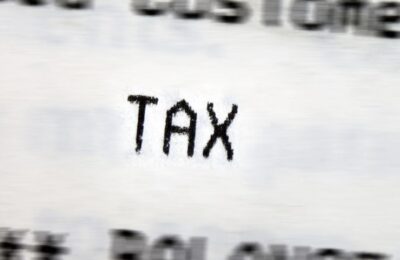Directors’ Loans
You may not be aware but there is a whole raft of legislation that seeks to penalise directors and shareholders if they borrow money from their companies. These regulations include possible tax Benefit in Kind charges for the directors/shareholders plus an additional Corporation Tax charge of 32.5% for the company for directors’ loans.
In effect, the tax system discourages directors from using their company as a private bank account.
1) If you borrowed more than £10,000
If you’re a shareholder and director and you owe your company more than £10,000 at any time in the year, your company must:
- Treat the loan as a ‘benefit in kind’
- Deduct Class 1 National Insurance
You also need to report the loan on your personal Self-Assessment Tax Return and you may have to pay tax based on the official rate of interest.
2) If you paid interest on the loan at below the official rate
If you’re a shareholder and director, your company must:
- Record interest you pay below the official rate as company income
- Treat the discounted interest as a ‘benefit in kind’
Again, you need to report the interest on your personal Self-Assessment Tax Return (SATR) and you may have to pay tax on the difference between the official rate and the rate you actually paid.
3) Corporation Tax
If your overdrawn director’s loan account has not been repaid by nine months and one day after the end of your accounting period, your company will have an additional corporation tax bill to pay.
However, when the loan is subsequently cleared, your company can reclaim the additional Corporation Tax it has paid. Unfortunately, you can’t reclaim any interest paid on the Corporation Tax.
Company borrowing from Directors
But what happens if the reverse situation occurs and a director/shareholder lends money to their company?
If a company requires long-term funding, this “loan” could be made by the issue of shares, in which case the shareholders may be entitled to future dividends. As shareholders, they would then also usually get to share in the spoils if the company was subsequently sold or wound-up. But once capital is used in this way to buy company shares, it is difficult for shareholders to recover their investment without going through a complicated and expensive legal process.
Instead of taking shares, a director could simply choose to lend money to the company. This is best done by agreeing terms and drafting a formal loan agreement between the company and the person lending the funds. This agreement should set out the terms for repayment, specify the security offered by the company and most importantly, detail the calculation and rate of any interest that will be paid by the company to the director for the use of the funds.
The last point is significant. Many directors of smaller companies simply deposit funds in their companies and take them back when they feel that they are no longer required. But by doing this, they may be missing out on a tax-free – albeit small – income stream.
As an example, the person lending the money could be entitled to the £1,000 or £500 personal savings allowance. A loan of just £16,000, with an agreed interest rate of say 6%, would generate an annual income for the lender of just under £1,000. If the lender was a basic rate tax payer they would be entitled to the £1,000 tax-free allowance. The company could also benefit by being allowed to deduct the interest payment when calculating its taxable profits.
As always, the devil is in the detail and there are a number of issues that need to be covered to ensure there are no traps for the unwary.
If you are considering loaning capital to your company from your own funds or wish to review any past loans made with a view to formalising them, then please contact our tax team on 0800 6520 025 to find out more.
About Jon Pryse-Jones
Since joining THP in 1978, Jon Pryse-Jones has been hands on with every area of the business. Now specialising in strategy, business planning, and marketing, Jon remains at the forefront of the growth and development at THP.
An ideas man, Jon enjoys getting the most out of all situations, “I act as a catalyst for creative people and encourage them to think outside the box,” he says, “and I’m not afraid of being confrontational. It often leads to a better result for THP and its clients.”
Jon’s appreciation for THP extends to his fellow team members and the board. “They really know how to run a successful business,” he says. He’s keen on IT and systems development as critical to success, and he continues to guide THP to be at the cutting edge and effective.
Read more about Jon Pryse-Jones More posts by Jon Pryse-Jones











